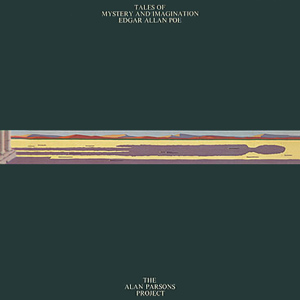
Tales of Mystery and Imagination is the debut studio album by British rock band The Alan Parsons Project. It was released on 25 June 1976 in the United Kingdom by Charisma Records. The lyrical and musical themes of the album, which are retellings of horror stories and poetry by Edgar Allan Poe, attracted a cult audience. The title of the album is taken from the title of a collection of Poe's macabre stories of the same name.
Shpongle is a psychedelic electronic music project from England that formed in 1996. The group includes Hallucinogen and Raja Ram. The duo are considered to be one of the progenitors of the psybient genre - a genre combining world music with psychedelic trance and ambient. Their musical style combines traditional music from all over the world and vocals with contemporary western synthesizer-based psychedelic music. When asked to describe Shpongle's music, Posford has responded that it is "like nothing you've ever heard before."

Raja Ram is an Australian-born musician and the owner of the United Kingdom record label Tip World. He was a founding member of the psychedelic rock band Quintessence in the late 1960s and early 1970s, playing at the first two Glastonbury Fayres in 1970 and 1971. He later found success in the psychedelic trance scene and continues to headline at large events worldwide.

The Visitors is the eighth studio album by Swedish pop group ABBA. It was released on 30 November 1981.
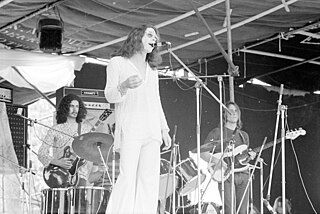
Quintessence was a rock band formed in April 1969 in Notting Hill, London, England. Their style was a mixture of jazz, psychedelic rock and progressive rock with an influence of music from India.
Younger Brother is an electronic duo formed in 2003 by Simon Posford and Benji Vaughan. Their debut album A Flock of Bleeps was released in 2003, followed by The Last Days of Gravity in 2007 and Vaccine in 2011.
Celtic Cross was a musical collaboration of Simon Posford, Martin Glover and Saul Davies. The style of music could be described as psychedelic rock, ambient and dub music with ethnic influences. The cover of the Hicksville album was designed by Mark Neal, the same artist who worked on Posford's Twisted and The Lone Deranger, as well as the Shpongle albums.

Wings at the Speed of Sound is the fifth studio album by the British–American rock band Wings, released on 25 March 1976. Issued at the height of the band's popularity, it reached the top spot on the US album chart—the band's fourth consecutive album to do so—and peaked at number 2 on the UK album chart. Both singles from the album also reached the top 5 of the UK and US singles charts, with "Silly Love Songs" reaching number 1 in the US.
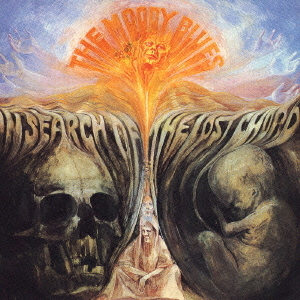
In Search of the Lost Chord is the third album by The Moody Blues, released in July 1968 on the Deram label.
Ott is a British record producer and musician who has worked with Sinéad O'Connor, Embrace, the Orb, and Brian Eno, and has achieved recognition since 2002 for his own psychedelic dub tracks and his collaborations with Simon Posford. He has released two albums on Twisted Records: Blumenkraft (2003), Skylon (2008), and three albums on Ottsonic: Mir (2011), Fairchildren (2015) and Heads (2022). His stage name is a reference to ethnobotanist Jonathan Ott who coined the term "entheogen".

A Valid Path is the fourth solo album by English rock musician Alan Parsons. The record was released on 24 August 2004 via Artemis label.

Are You Shpongled? is the first of six albums released by Shpongle. Are You Shpongled? sold in excess of 30,000 copies. A remastered version of Are You Shpongled? was released on 30 June 2017, along with a limited edition super-deluxe triple vinyl set.

Nothing Lasts... But Nothing is Lost is a 2005 album by Shpongle. It is the project's third and was announced as their last, though that plan later changed. Like the previous two albums, it features many live musicians and vocalists in combination with computer-generated sounds and spoken-word samples. Stylistically the album can be described as a fusion of world music, intelligent dance music, and psychedelic trance. It is dedicated in memory of author and psychedelic researcher Terence McKenna, whose voice and ideas are used throughout the album. The tracks flow together continuously without any break.
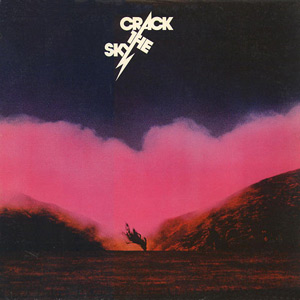
Crack the Sky is the debut album by American rock band Crack the Sky, released on LP in 1975 by Lifesong Records.
Nicholas Barber, better known by the stage name Doof, is best known as a British, London-based psychedelic trance musician.

Children of God is the fifth studio album by American experimental rock band Swans. It was released on October 19, 1987, through record label Caroline.

Cross That Line is the fourth album by British pop musician Howard Jones, released in March 1989. It featured two hit singles "The Prisoner" and "Everlasting Love", though neither of these singles nor the album itself were successful in Jones's native UK.
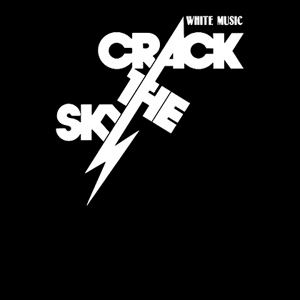
White Music is the fourth studio album by American rock band Crack the Sky, released on LP in 1980 by Lifesong Records. It was the first release from the newly reformed Crack the Sky, whose lineup included only two members from the original band: singer/songwriter John Palumbo and guitarist Rick Witkowski.

Ineffable Mysteries from Shpongleland is the fourth studio album by Shpongle released on 2 November 2009. The album's track list was released on 12 August via Twisted Records (UK)'s website. Songs from the album began to trickle to the public in live form, being played at many of Shpongle's 2009 concerts. Previews of the album were made available through Twisted Music's official audio player. The album was ranked at #7 on Sputnik's Best Of 2009 list.
Psydub is a fusion genre of electronic music that has its roots in psychedelic trance, ambient and dub music. Incorporated dub elements are melodic basslines, deep reggae roots and producing techniques like dynamically adding extensive echo, reverb, panoramic delay, and occasional dubbing of vocal or instrumental snippets from the original version or other works. An incorporated ambient element is an emphasis on tone and atmosphere. Incorporated psytrance elements are low-bass frequencies and hypnotic melodies and the use of samples. Those samples mostly contain references to drugs, parapsychology, extraterrestrial life, existentialism, out of body experiences, dreams, science, time travel, spirituality and similar mysterious or unconventional topics. Psydub is also highly influenced by the music of India.














